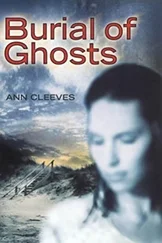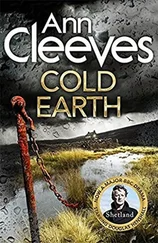The fog came and went all afternoon. There was no wind later in the day, but the mist seemed to thin occasionally as if by magic and then, for no apparent reason, returned and was as thick as ever. Polly and Marcus took a trip into Lerwick as Willow had suggested. At first Marcus hadn’t been keen.
‘We don’t have a lot of time. By the time we get there we’ll have to come back. Why don’t we wait until we have a full day to explore?’
But Polly thought she’d go completely mad if she didn’t leave the island. ‘I’d like to look at the museum,’ she said, ‘have a dig around in the archives. We have time enough for that.’
He’d smiled then. ‘Isn’t that a sort of busman’s holiday?’ But he’d gone online to look at timetables and book ferries very quickly and they left almost at once. She thought that he was always happier when he was moving. He talked about settling down and finding a job that would keep him in the country for more than a month at a time, but she thought he’d soon get restless. They’d asked Ian if he’d like to join them, but he refused and Polly sensed that he was pleased to see them drive away. In the house on the beach they were like rats crammed together in a cage.
Lerwick felt like a big town after Unst. The boat to Aberdeen was moored at the ferry terminal. It looked huge, a reminder of the mainland, real-scale cities and real-scale transport. Polly looked at Marcus, wondering if he’d had the same thought as she’d had: they could just drive aboard and escape completely. But he seemed not even to notice it and had his eyes on streets and road signs, and was triumphant when he brought her straight to the new buildings of the arts centre and the museum looking out over the water.
‘What will you do?’ She knew that the museum would bore him. He was only interested in the exotic present.
‘I’ll explore the town. Meet you in the cafe back here for tea? Then I suppose we’ll have to get back.’
‘We could book into a hotel for a night.’ The thought of returning to Unst and the house by the shore already made her feel panicky. She imagined a solid town house in Lerwick, a meal in a good restaurant, then frivolous television in their room. Something to banish thoughts of Eleanor.
He looked at her and she could see that he found the idea appealing too. For a moment she thought he might agree to the plan. ‘Perhaps we’d better not,’ he said at last. ‘We don’t want the police to think we’re being difficult.’
In the main body of the museum there was a small display about Elizabeth Geldard and an oil painting of the girl, sitting at a window, with her hands on her lap looking very demure. She wore winter clothes, a knitted cardigan and a hat, and it was only the long hair that made Polly think of the girl she’d seen on the beach. This child looked rather staid and dull, and Polly couldn’t imagine her twirling on her toes or skipping across the sand. There was no mention of the acquisition of the work, whether it had been a donation or been purchased. A small display board explained the legend of Peerie Lizzie, but Polly learned nothing new from it, except that a song about the girl had been written by Marty Thomson, a local musician.
From the car she’d phoned the archivist, Simon Barr. He’d heard of the Sentiman Library, shared her fascination with folk tales and agreed to see her at once. She found him upstairs in a big, open-plan office, with a view of the Hay’s Dock. She decided this constant presence of water was adding to her unease. She’d never learned to swim and as a child she’d had nightmares about drowning. She hadn’t thought about the dream for years, but since Eleanor’s death it had recurred, just as she was waking, so it stayed with her all day. Now she pictured the sea eating away at the islands, nibbling them piece by piece until there was no land left and the water overwhelmed her. She sat with her back to the window facing Barr’s desk.
‘So you want to know about our Peerie Lizzie,’ he said. ‘Of course it’s quite a recent legend, as these things go. My grandmother worked at Springfield House when she was a girl, though she’s been dead for many years now.’
‘Did she tell you what happened the day Elizabeth was drowned?’
‘She told me her version of the story, but I couldn’t say how much was true and how much she’d made up over the years. She was full of tales and, like a lot of old people, she mixed up the fact and the fiction in her mind, I think.’
‘Did she believe in the ghost?’ Polly found that she was holding her breath.
‘Oh, she claimed to have seen her. She spent all her life in Unst. Before its present owners took it on, Springfield House was empty for years and local folk treated the land as their own, taking their children to picnic in the gardens. According to my grandmother, Lizzie appeared to her when she was picking raspberries there one summer. It was late in the evening and she was on her own. The child was dressed in white and seemed to walk towards her in the walled garden; then she disappeared although the gate was shut.’ He paused and grinned. ‘But don’t believe a word of it. As I told you, my grandmother loved making up stories.’
‘What did she tell you about the child’s death?’
‘She said everyone blamed Sarah Malcolmson, but it wasn’t really her fault. She’d been given the day off to help her mother with a new baby, and she was only there when Elizabeth ran down to the shore because she’d stopped to chat to the lad who worked in the gardens on her way home. If anyone was responsible for the accident it was Lizzie’s mother, Roberta.’
‘Are there any reports into the accident?’
‘Nothing unbiased. Gilbert Geldard was a landowner and a gentleman. The authorities were always going to accept his version of events. David Gordon, one of the owners of Springfield, has put together a pamphlet about the story for his guests. You’re very welcome to look at The Shetland Times account of the tragedy, and I can let you have a copy of David’s paper. He’s a historian, so it’s well put together.’
He’d told her all she’d wanted to know, but still she lingered in his office. It was new and light, but the atmosphere reminded her of her shared office in the Sentiman. She felt safe here, and all the horror of their stay in Unst was left behind. Of course there was no ghost. The stories were like the ones she worked with – you could trace them back to an original source, made more elaborate over the years. Soon they would return to London, and she would go back to work and everything would be well. She stood and took her leave.
She found Marcus in the museum cafe drinking tea and eating home-made cake. He caught a glimpse of her across the room and waved and smiled as if he’d been away on one of his trips.
‘What did you make of Lerwick?’
‘It was fun,’ he said. ‘Everyone knows each other. Which is comforting, but a bit scary. You wouldn’t get away with anything here.’ He reached into his pocket and brought out a pair of hand-knitted Fair Isle gloves. ‘A present.’
She leaned across the table to kiss him.
Back in Unst they stopped twice on their way to Sletts. Once to look at the famous bus shelter, decorated like a piece of installation art, and once for Marcus to take photographs of seals hauled up onto the rocks. Perhaps because of the mist the animals seemed unafraid and allowed them to come very close before sliding into the still water. They groaned like people in pain and the noise echoed around the bay. They reminded Polly of fat, glistening slugs, grey and blotchy, and she wondered why people were so fond of them.
‘There’s a folk tale about the seals,’ she said. ‘Selkies. They steal the souls of women.’
Читать дальше












